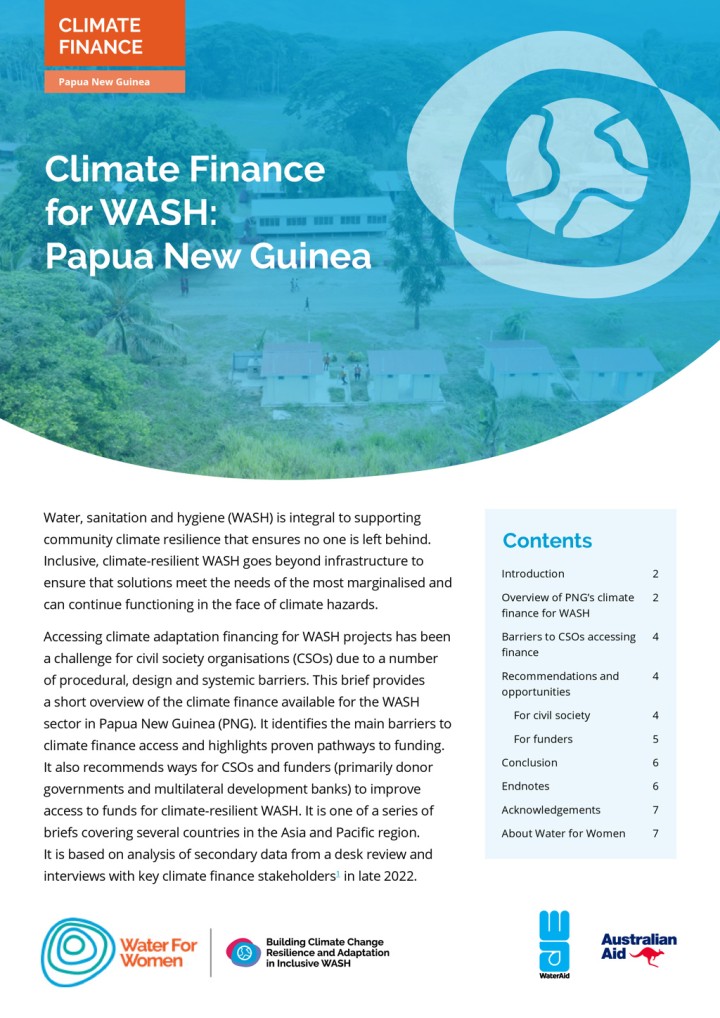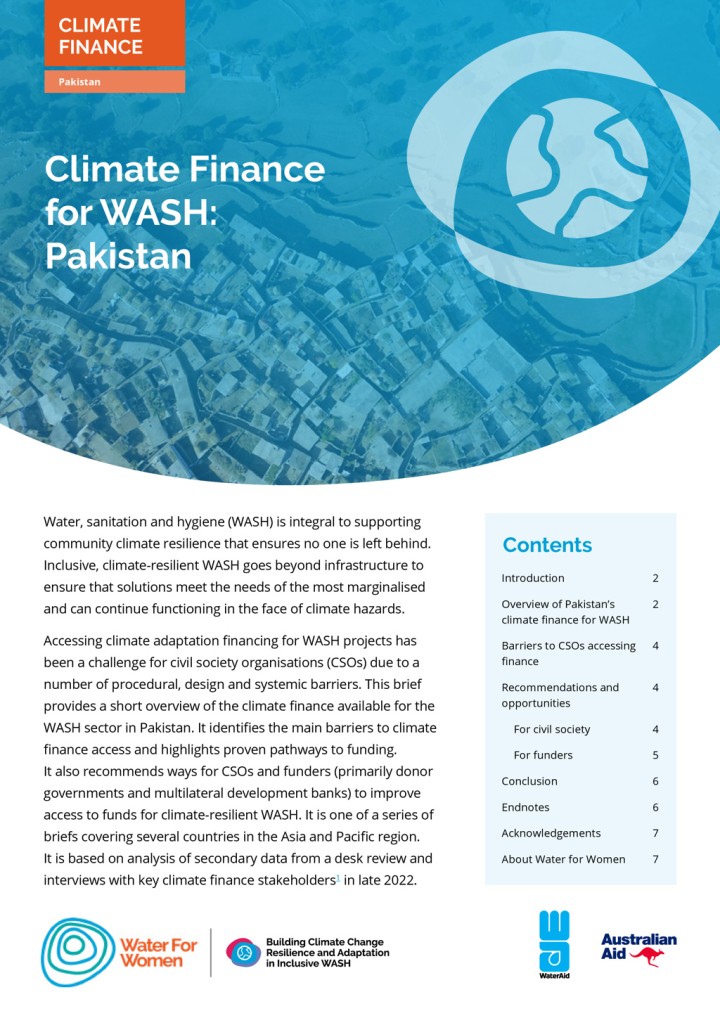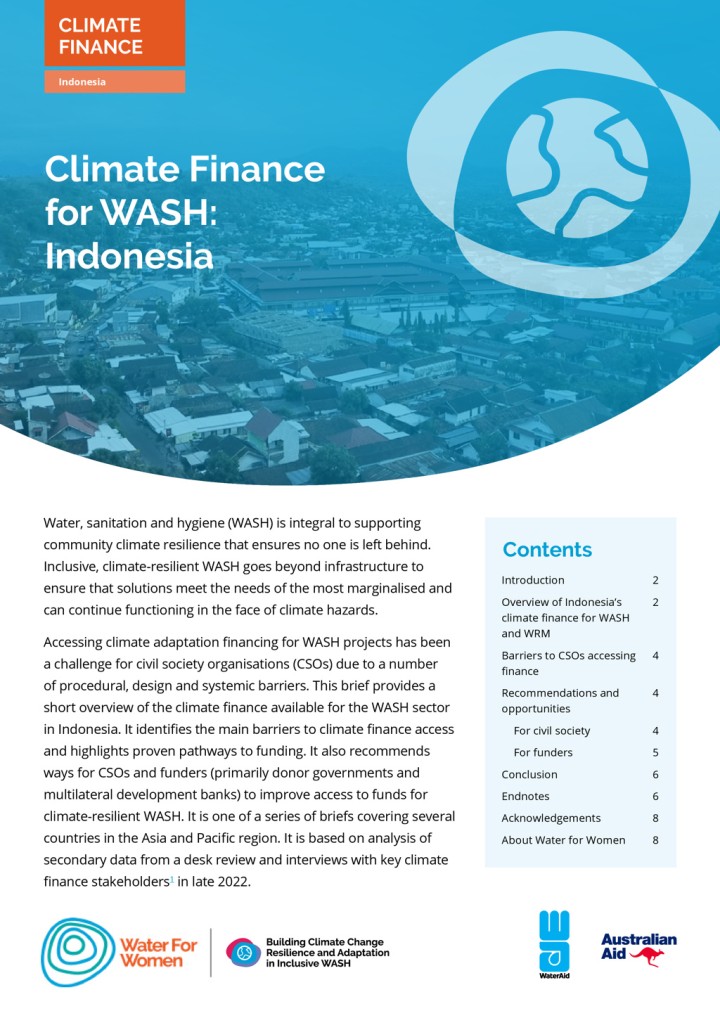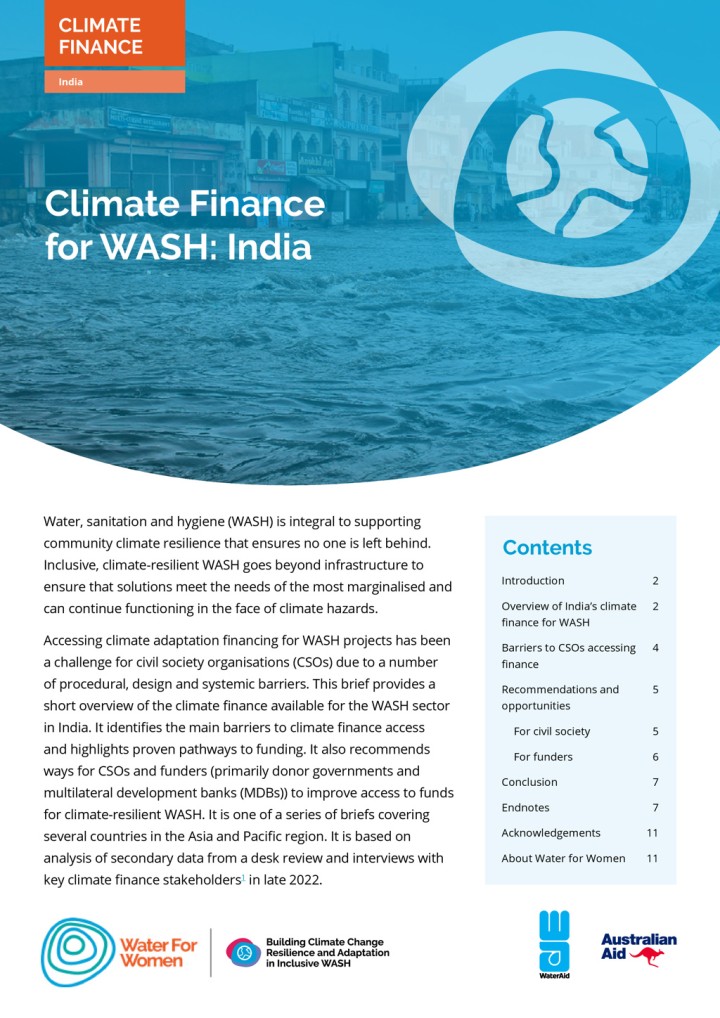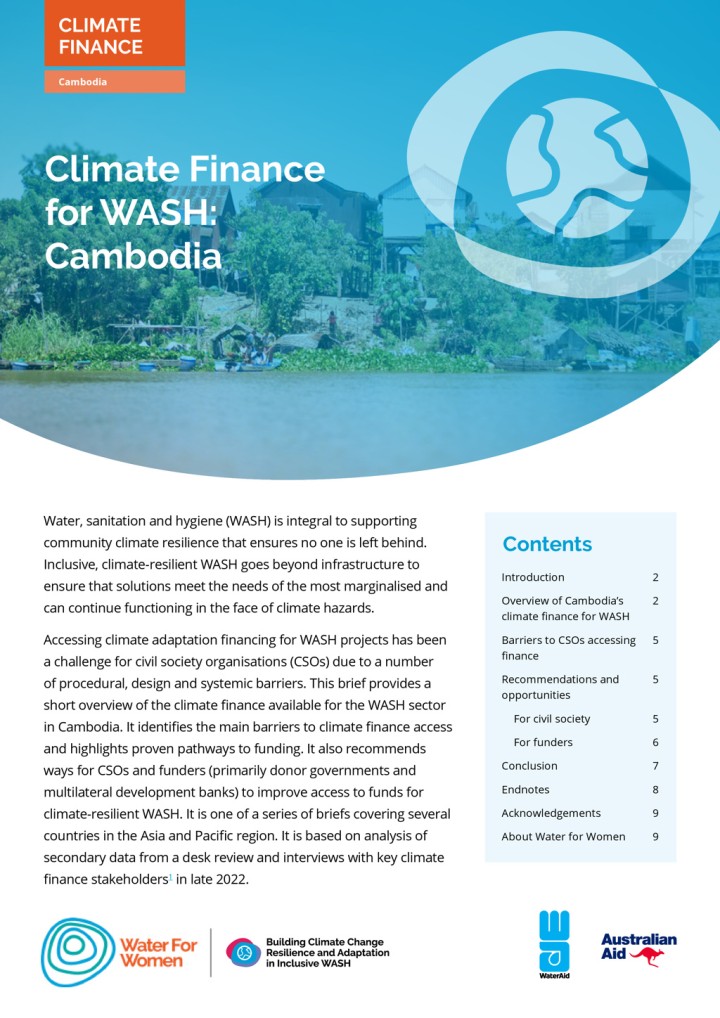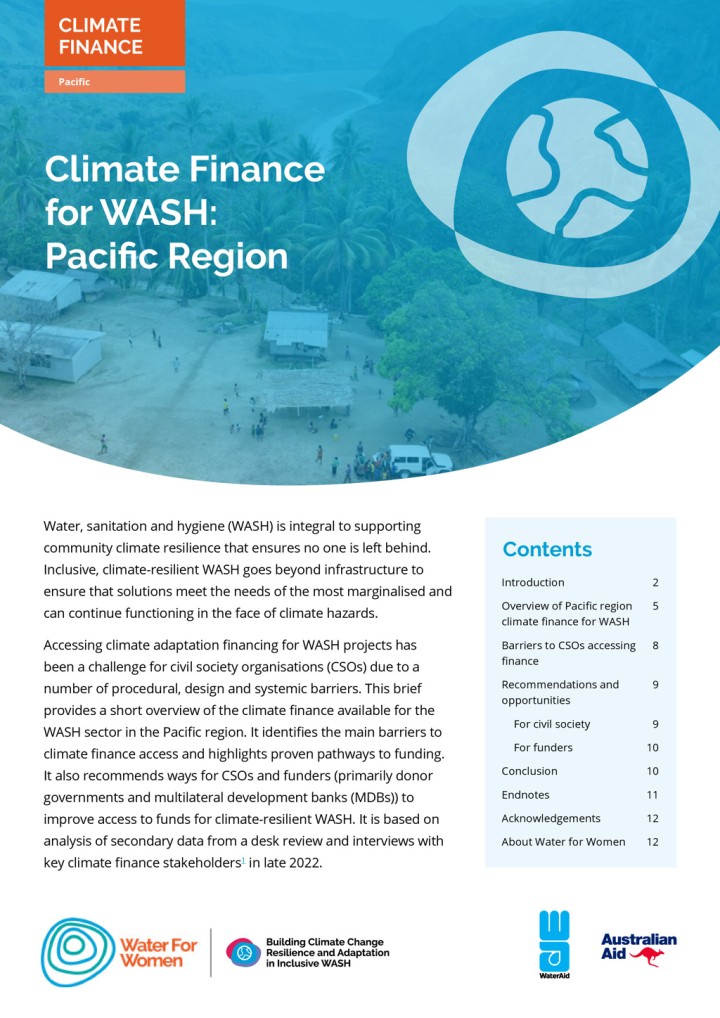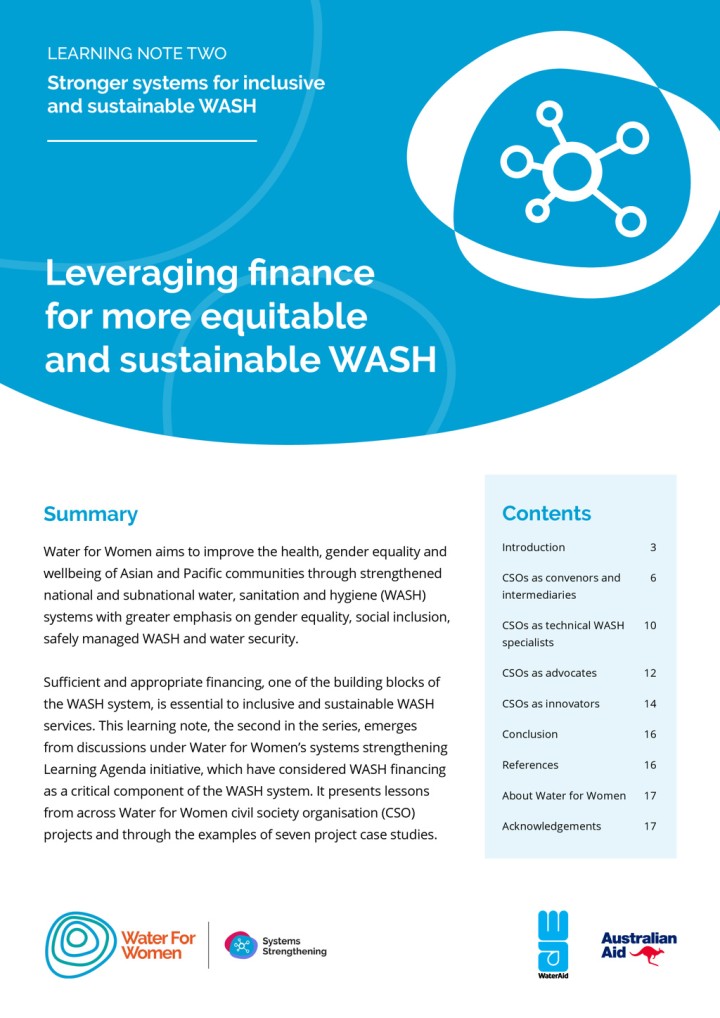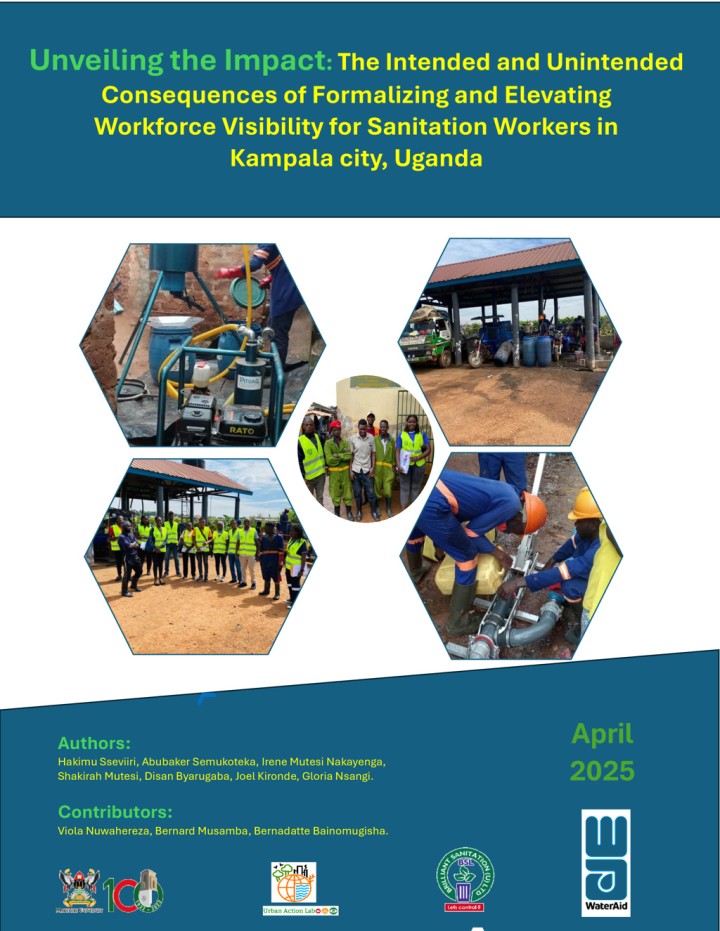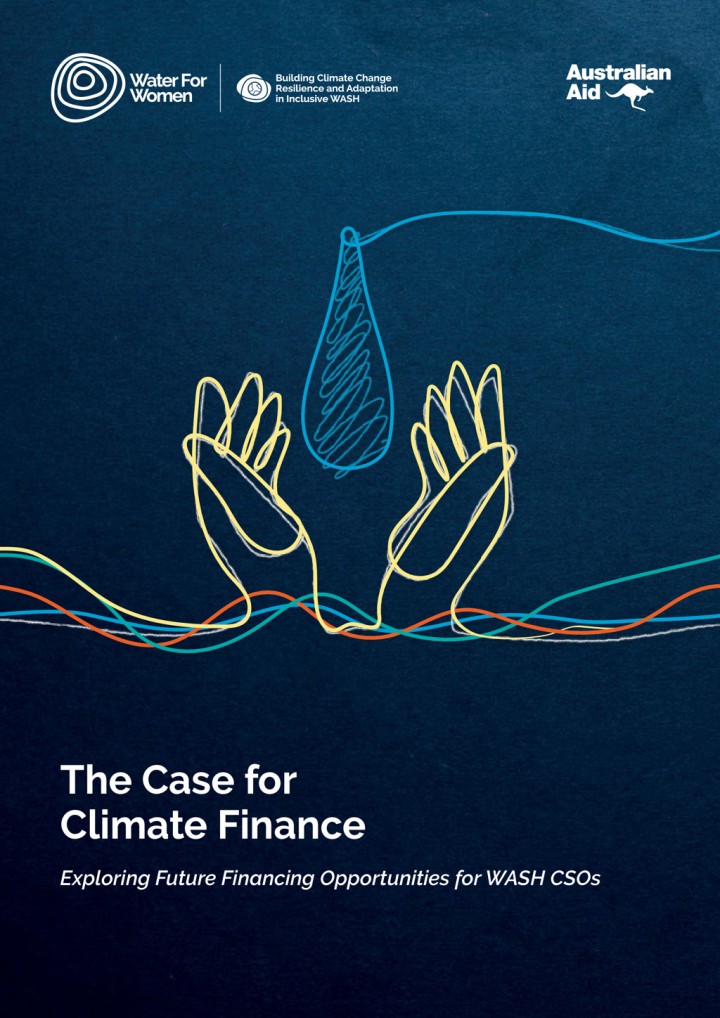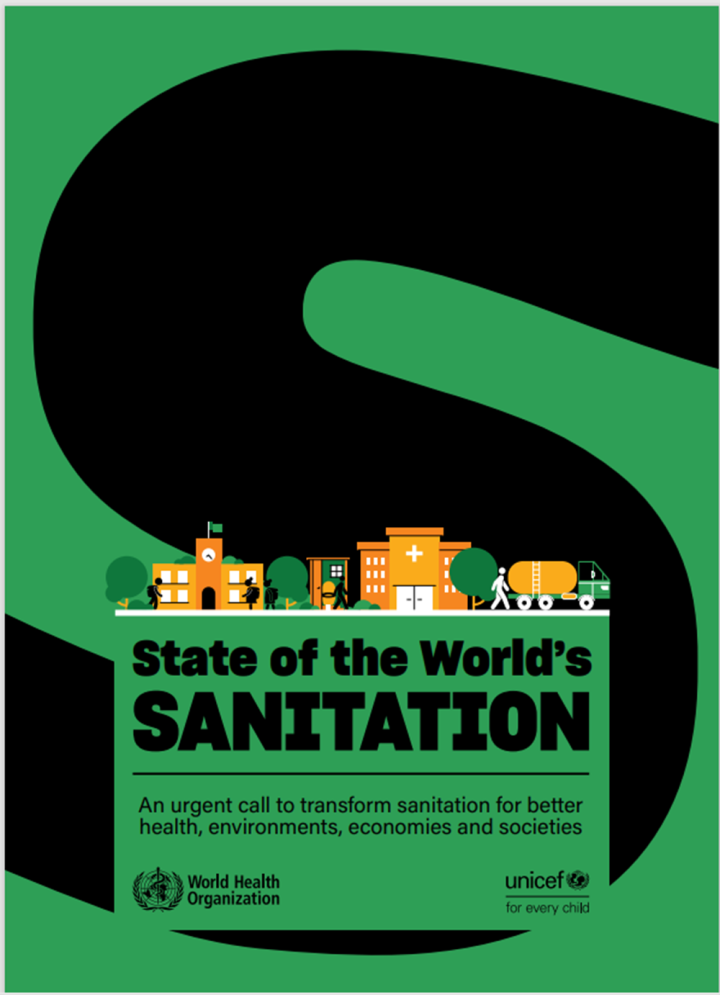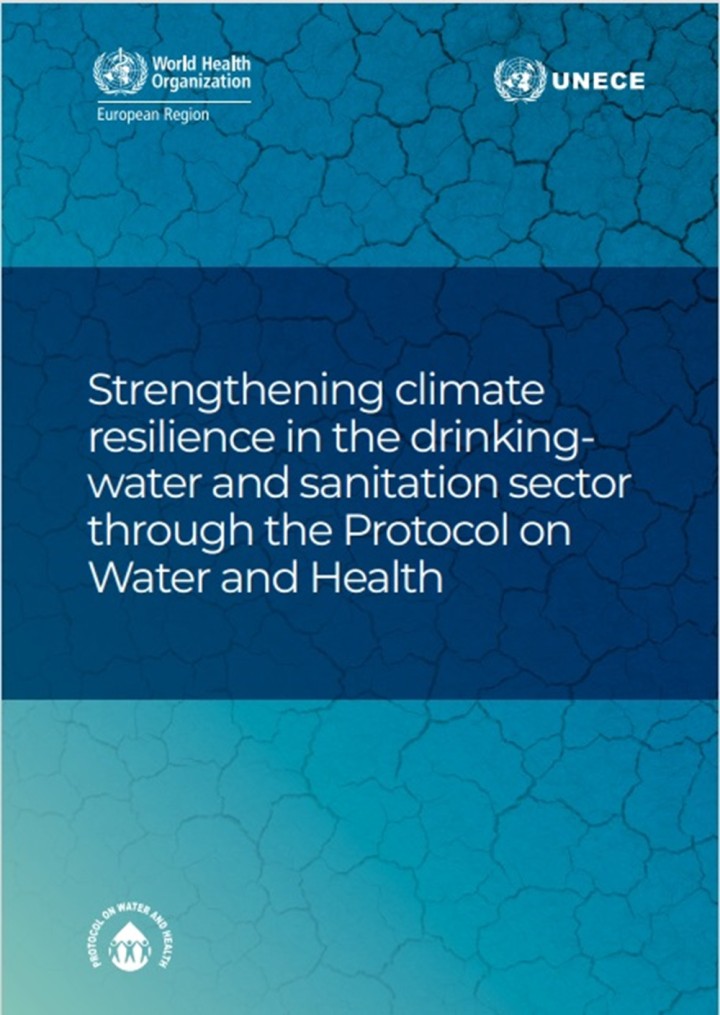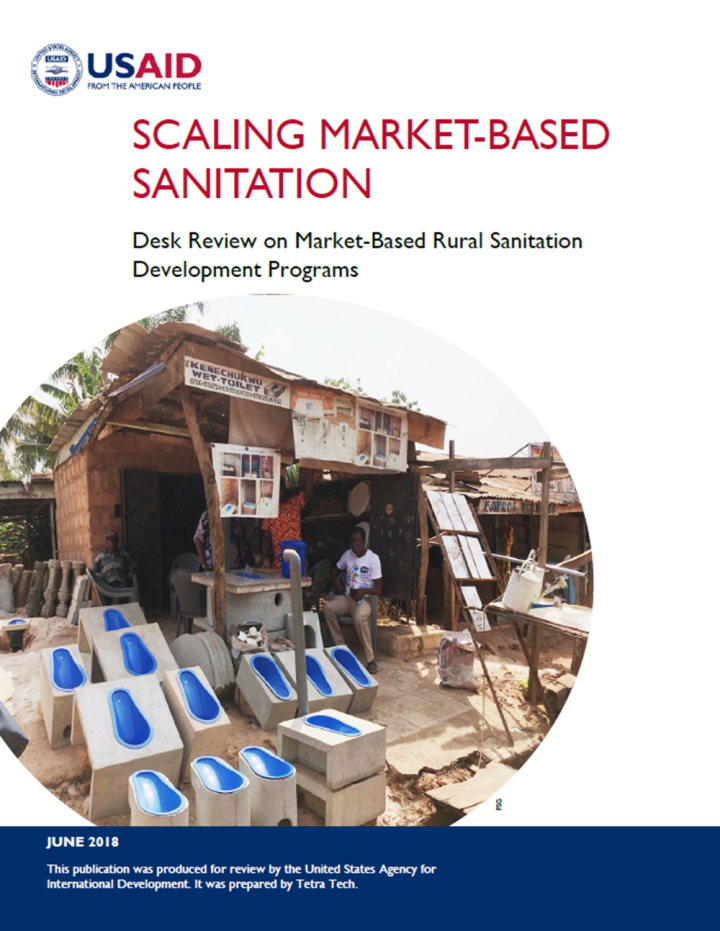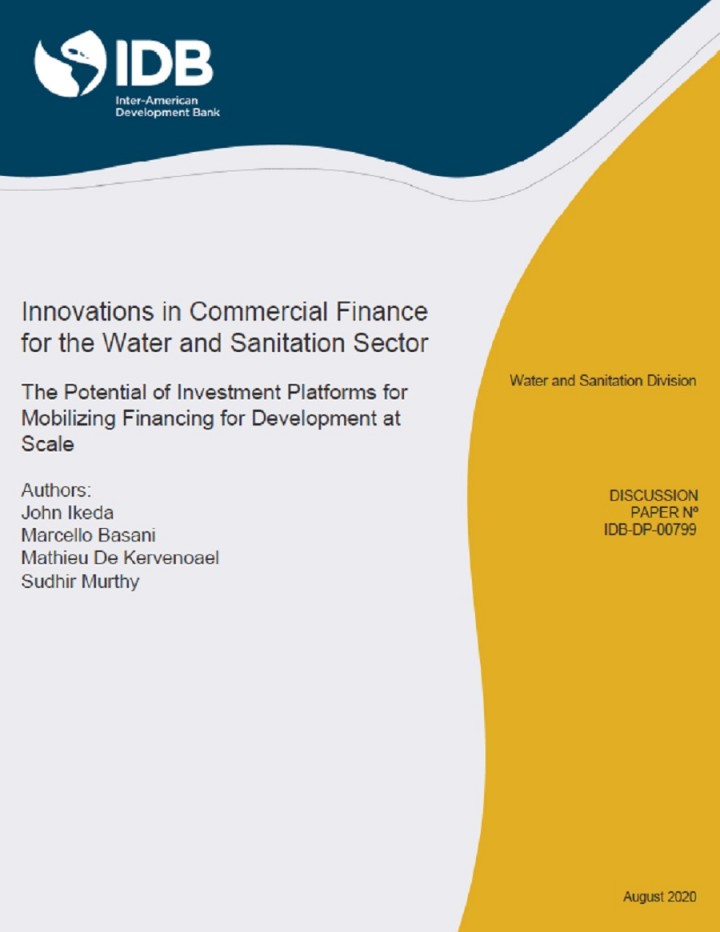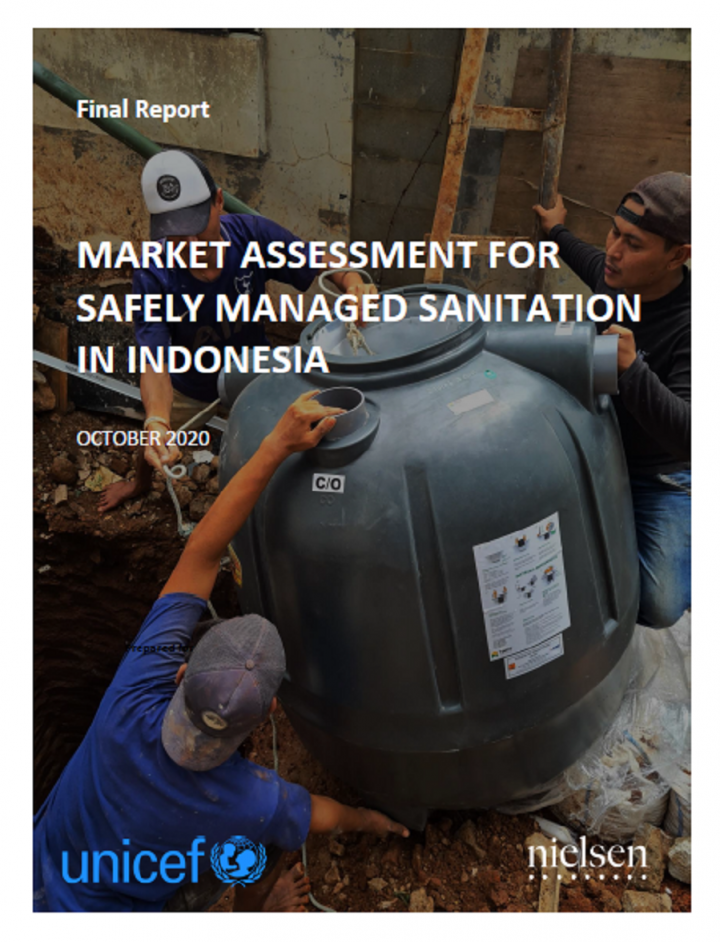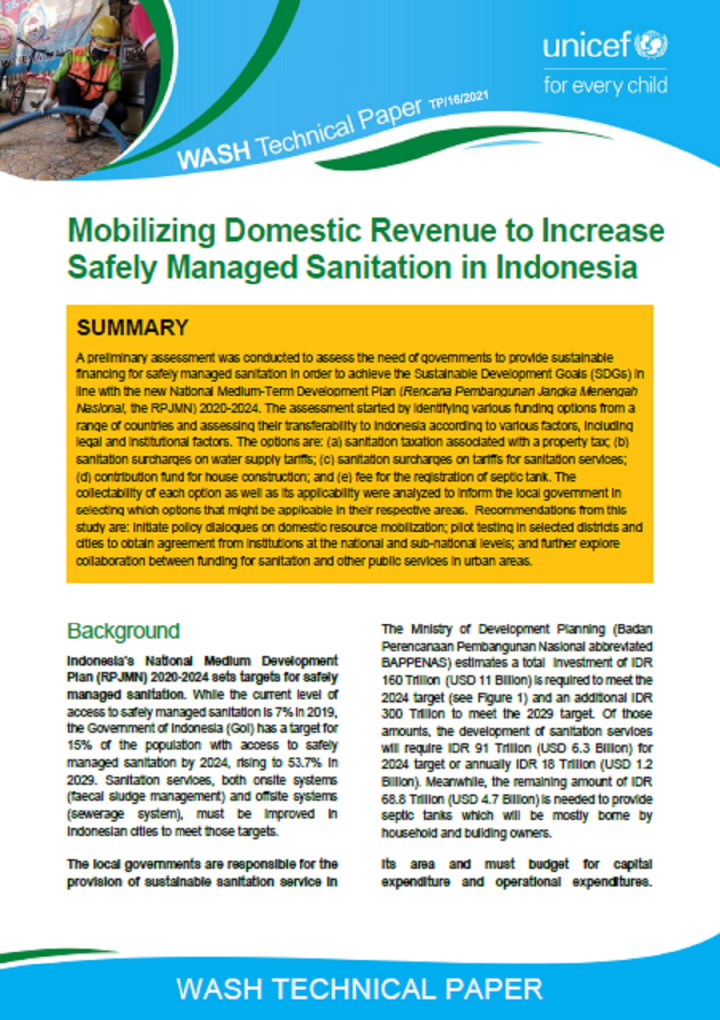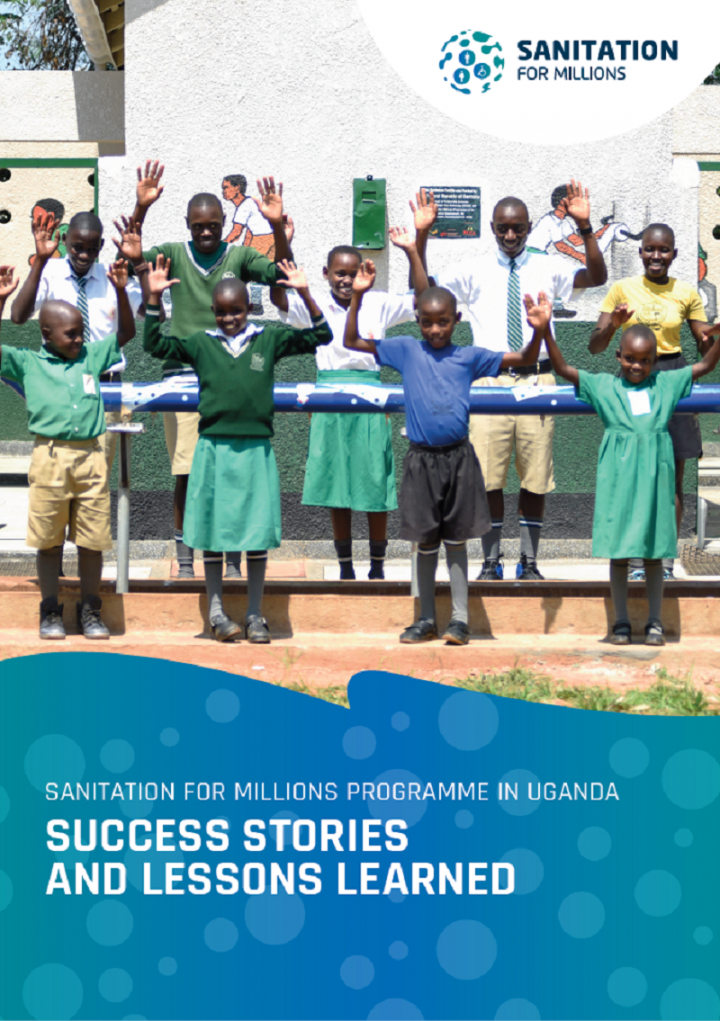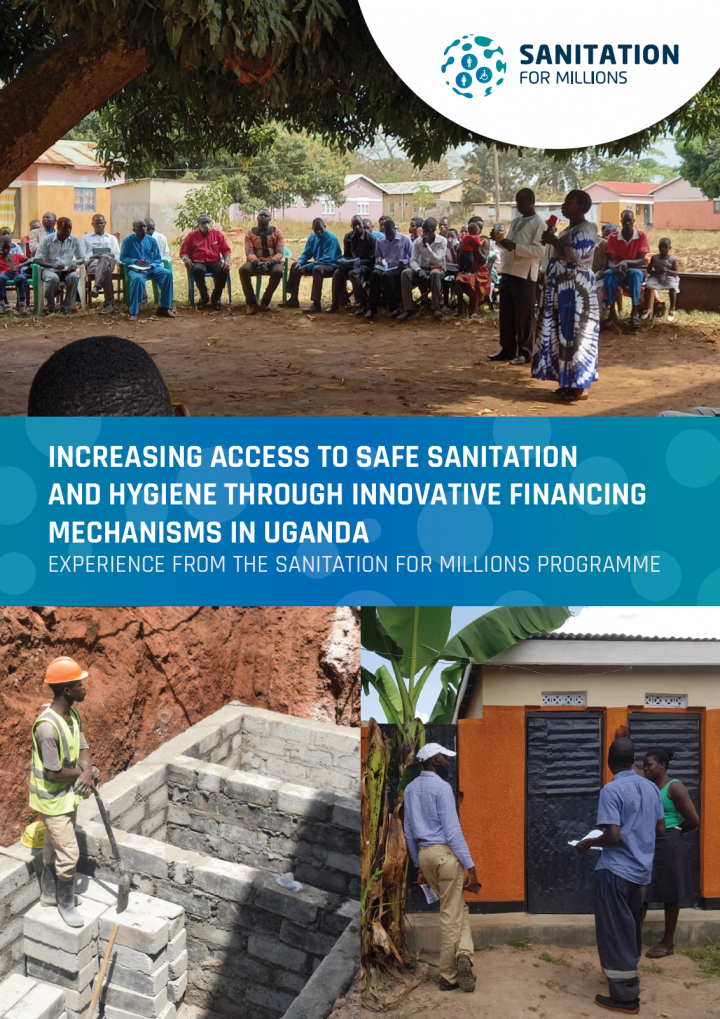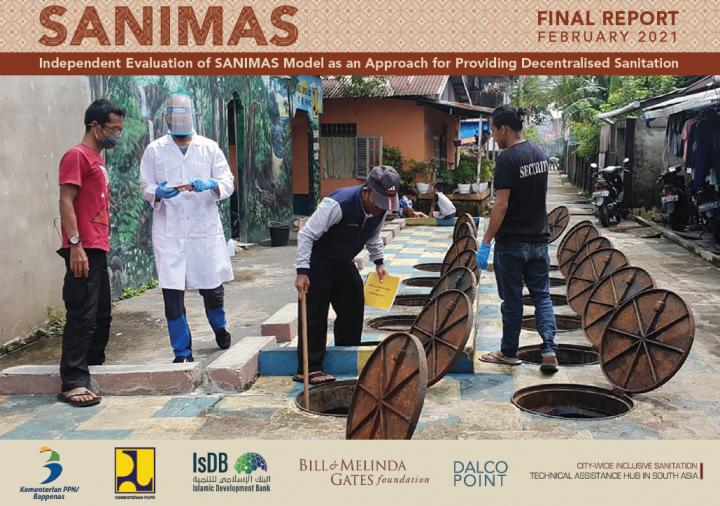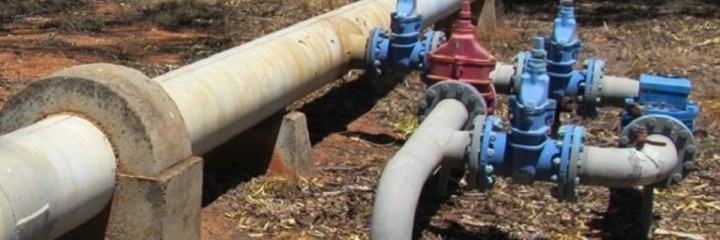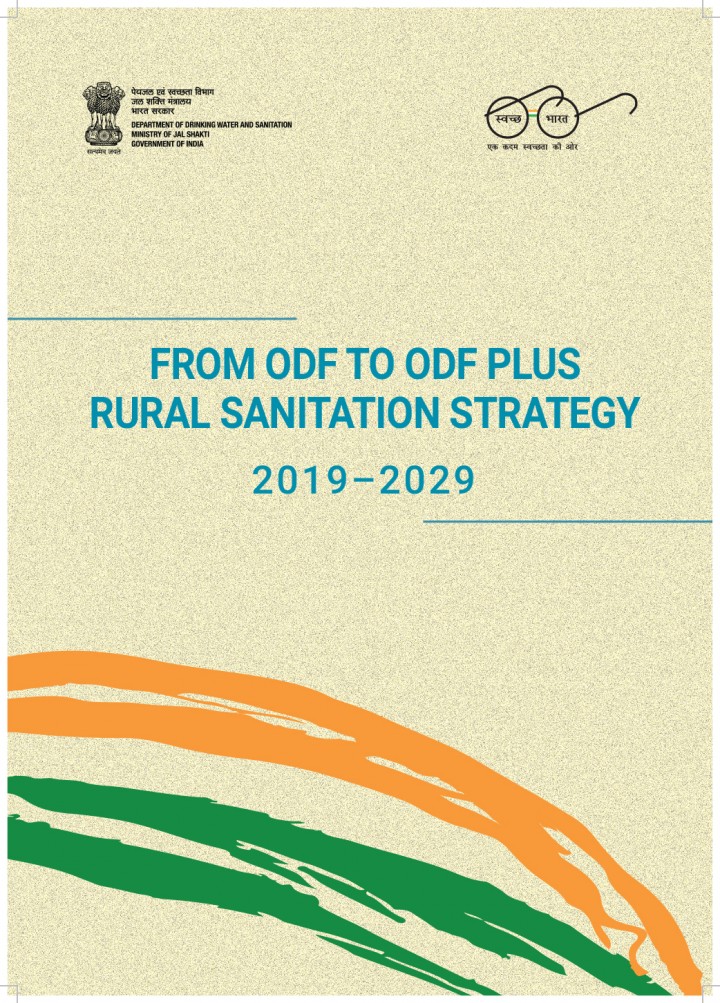Nupur Khanna; Tanvi Oza; Paul Johnston (2023) Climate Finance for WASH: Papua New Guinea
Water, sanitation and hygiene (WASH) is integral to supporting community climate resilience that ensures no one is left behind. Inclusive, climate-resilient WASH goes beyond infrastructure to ensure that solutions meet the needs of the most marginalised and can continue functioning in the face of climate hazards. Accessing climate adaptation financing for WASH projects has been a challenge for civil society organisations (CSOs) due to a […]
Habib Ur Rehman; David Clatworthy (2023) Climate Finance for WASH: Pakistan
Water, sanitation and hygiene (WASH) is integral to supporting community climate resilience that ensures no one is left behind. Inclusive, climate-resilient WASH goes beyond infrastructure to ensure that solutions meet the needs of the most marginalised and can continue functioning in the face of climate hazards. Accessing climate adaptation financing for WASH projects has been a challenge for civil society organisations (CSOs) due to a […]
Wahyu Triwahyudi (2023) Climate Finance for WASH: Indonesia
Water, sanitation and hygiene (WASH) is integral to supporting community climate resilience that ensures no one is left behind. Inclusive, climate-resilient WASH goes beyond infrastructure to ensure that solutions meet the needs of the most marginalised and can continue functioning in the face of climate hazards. Accessing climate adaptation financing for WASH projects has been a challenge for civil society organisations (CSOs) due to a […]
Anirban Chatterjee (2023) Climate Finance for WASH: India
Water, sanitation and hygiene (WASH) is integral to supporting community climate resilience that ensures no one is left behind. Inclusive, climate-resilient WASH goes beyond infrastructure to ensure that solutions meet the needs of the most marginalised and can continue functioning in the face of climate hazards. Accessing climate adaptation financing for WASH projects has been a challenge for civil society organisations (CSOs) due to a […]
Paul Johnston; Tyler Kozole (2023) Climate Finance for WASH: Cambodia
Water, sanitation and hygiene (WASH) is integral to supporting community climate resilience that ensures no one is left behind. Inclusive, climate-resilient WASH goes beyond infrastructure to ensure that solutions meet the needs of the most marginalised and can continue functioning in the face of climate hazards. Accessing climate adaptation financing for WASH projects has been a challenge for civil society organisations (CSOs) due to a […]
Water for Women (2023) Climate Finance for WASH: Pacific Region
Accessing climate adaptation financing for WASH projects has been a challenge for civil society organisations due to a number of procedural, design and systemic barriers. To address this challenge, a consortium of Water for Women partners developed a series of briefs on climate finance for the WASH sector in Asia and the Pacific. The Pacific regional brief is available along with five country-specific briefs.
Fraser Goff (2022) Learning Note 2: Leveraging finance for more equitable and sustainable WASH
Water for Women aims to improve the health, gender equality and wellbeing of Asian and Pacific communities through strengthened national and subnational water, sanitation and hygiene (WASH) systems with greater emphasis on gender equality, social inclusion, safely managed WASH and water security. Sufficient and appropriate financing, one of the building blocks of the WASH system, is essential to inclusive and sustainable WASH services. This learning […]
Hakimu Sseviiri; Abubaker Semukoteka; Irene Mutesi Nakayenga; Shakirah Mutesi; Disan Byarugaba; Joel Kironde; Gloria Nsangi (2025) Unveiling the Impact: The Intended and Unintended Consequences of Formalizing and Elevating Workforce Visibility for Sanitation Workers in Kampala city, Uganda
Sanitation services are pivotal not only for enhancing public health but also for fostering the productivity of urban systems, particularly as cities continue to expand. Amidst efforts by public, private, and civil society actors to engage the sanitation sector through decentralized and small-scale service provision models, significant challenges related to workforce welfare, legitimacy, and adequate financing persist, underscoring the need to recognize and support the […]
Water for Women (2025) The Case for Climate Finance Exploring Future Financing Opportunities for WASH CSOs
This learning brief shares key findings and insight into climate finance, including the current funding landscape and its relevance to WASH actors. • The rise of climate finance marks a transformative shift in the global approach to climate change, with significant implications for a wide range of stakeholders • With global reductions in official development assistance, civil society organisations (CSOs) are under increasing pressure to find […]
WHO and UNICEF (2021) State of the world's sanitation: An urgent call to transform sanitation for better health, environments, economies and societies
For the first time WHO and UNICEF bring together the data on sanitation coverage and investment, and how it impacts health, economies, and the environment. Citing evidence on what works from successful countries and global guidelines, WHO and UNICEF call for strong government leadership and investment in resilient sanitation services. The report charts an ambitious way forward following the SDG6 global acceleration framework themes of […]
World Health Organization Regional Office for Europe (2024) Strengthening climate resilience in the drinking-water and sanitation sector through the Protocol on Water and Health
Strengthening the resilience of water and sanitation services to climate change is a key priority across the pan-European region. Infrastructure and supporting services are at increasing risk from climate threats, which may compromise the health and well-being of communities. Service providers are actively undertaking measures to reduce greenhouse gas emissions and adapt infrastructure and management strategies to enhance resilience. Climate change considerations are increasingly being […]
Rishi Agarwal, Subhash Chennuri, and Aaron Mihaly, FSG (2018) Scaling Market-Based Sanitation Desk Review on Market-Based Rural Sanitation Development Programs
This desk review from the USAID/WASHPaLS project investigates the current state of knowledge in market-based sanitation (MBS) and establishes a framework to analyze, design, and improve MBS interventions. This report is based on a survey of approximately 600 documents on MBS, in-depth research into 13 MBS intervention case studies across the global south, and interviews with sector experts and program personnel. This review offers a framework […]
Inter-American Development Bank (2020) Innovations in Commercial Finance for the Water and Sanitation Sector: The Potential of Investment Platforms for Mobilizing Financing for Development at Scale
Massive amounts of investment are needed to meet the United Nations Sustainable Development Goals for water supply and sanitation. However, several challenges have limited the ability to mobilize commercial finance for the sector, including a complex political economy, high transaction costs and an unclear regulatory environment. Investment platforms are an online tool for bringing […]
UNICEF, nielsen (2020) Market assessment for safely managed sanitation in Indonesia
Realizing its commitment to providing universal access to sanitation, the Government of Indonesia aims to shift from open defecation free into safely managed sanitation as the national plan for sanitation is targeting to provide 15% of the population with access to safely managed sanitation. Based on the Statistics Bureau, in 2019, there are 77.44% households that have access to sanitation in Indonesia with 7.5% of […]
M. Listyasari (UNICEF Idonesia) (2022) Mobilizing Domestic Revenue to Increase Safely Managed Sanitation in Indonesia
A preliminary assessment was conducted to assess the need of governments to provide sustainable financing for safely managed sanitation in order to achieve the Sustainable Development Goals (SDGs) in line with the new National Medium-Term Development Plan (Rencana Pembangunan Jangka Menengah Nasional, the RPJMN) 2020-2024. The assessment started by identifying various funding options from a range of countries and assessing their transferability to Indonesia according […]
Sanitation for Millions Uganda implementation team (2021) Sanitation for Millions Programme in Uganda- Success stories and lessons learned
Sanitation for Millions is a global multi-donor programme to improve access to safe sanitation and hygiene with a focus on vulnerable and disadvantaged groups. More than one million people in 14 countries have already benefitted directly from Sanitation for Millions’ measures that include the construction of sanitary facilities, capacity development to ensure adequate use, operation and maintenance, behaviour change measures towards safe hygiene as well […]
Sanitation for Millions (2021) Increasing access to safe sanitation and hygiene through innovative financing mechanisms in Uganda Experience from the Sanitation for Millions programme
Globally, 4.2 billion people do not have access to safe sanitation services, and approximately 3 billion lack basic handwashing facilities. Even in 2021, almost 700 million people still practise open defecation and nearly 400 million children attend schools with no sanitation facilities at all. The large financing gap has been identified as one of the greatest barriers to achieving the water, sanitation and hygiene-related targets of […]
Bulson, P., Muslimah, S., Reynaud, N., Blackett, I., Campbell, A. V., Arsyini, I. (2021) Independent Evaluation of SANIMAS Model as an Approach for Providing Decentralised Sanitation
According to RPJMN 2020–20241 figures, in 2018 almost 75 percent of the Indonesian population has access to improved sanitation nationally. This includes almost 7.5 percent classified as safely managed sanitation services based on Sustainable Development Goals (SDGs) 2030 definitions. These figures are impressive considering the low base of sanitation coverage with which the country has been evolving from. The Indonesian government, IsDB, Bill & Melinda Gates […]
UNICEF Maharashtra and Water.org (2021) An Ecosystem for WASH Microlending in India
This field note provides an overview of the WASH and health financing project that is being implemented in the state of Maharashtra, India – The Ecosystem Approach. The project integrates WASH behaviour change communication (BCC) with rural household microlending programs to drive household water and sanitation access through loans. This initiative aims to establish open defecation free (ODF) communities supporting the larger national programme, the […]
Department of Drinking Water and Sanitation (2019) From ODF to ODF+, Rural Sanitation Strategy 2019 - 2029
This ten year sanitation strategy for rural areas in India, prepared by the Department of Drinking Water and Sanitation (DDWS), Ministry of Jal Shakti, Government of India, in consultation with State Governments and other stakeholders, lays down the framework for achieving this long term vision. The strategy is intended to guide, local governments, policy makers, implementers and all relevant stakeholders including the people of rural […]
